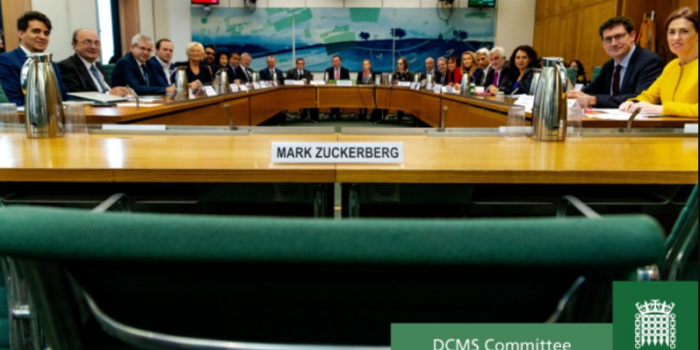Good Monday morning. It’s February 11th. Valentine’s Day is Thursday, and the federal government faces its next shutdown crisis on Friday. These both occur right before the 3 day President’s Day holiday next Monday. We won’t be publishing next week unless something extraordinary happens.
Today’s Spotlight takes about 4 minutes to read.
News to Know Now
- Germany told Facebook its data collection practices, specifically sharing data between the platforms it owns: Whats App, Instagram, and Facebook, violate the EU’s GDPR privacy regulations. Facebook is appealing.
- Google released a Chrome extension that warns consumers if the password they’re using has been identified as hacked. (It’s legit – add Password Checkup to Chrome here)
- Three new numbers worth knowing:
- Google’s Gsuite (gmail, calendars, etc.) has 5 million paying customers.
- Twitter has 126 million ‘daily active users’–far less than competitors and even Snapchat
- Duck Duck Go served 1 billion searches in January. That’s 1% of the U.S. search market, and as we always say, “One billion of anything is worth knowing about.”
Spotlighting Google
Google’s parent Alphabet reported better than expected revenues that still didn’t please Wall Street. Like Amazon, analysts cited higher spending concerns as a reason to drub the stock. Also like Amazon, the company’s future growth is in cloud computing services. Industry leading Amazon Web Services (AWS) created $7.4 billion in cloud revenue last quarter. Watch the tension between Google and Amazon in 2019–especially as Amazon’s ad revenue keeps growing.
Google continues cozying up to small businesses, the last bastion of mostly untapped digital marketing dollars Their latest effort to control local advertising included letters sent to small businesses that said Google would begin automating their advertising unless the business opted out. The solicitation did not fare well at the small and medium sized businesses we spoke with or in the digital agency world, and yes, that’s us. Let us know if you got one of those emails and want to understand your options.
Keeping nonprofits happy remains a Google business practice. Most nonprofits can receive free advertising, GSuite services, and other freebies on Google after a qualification process (we can help). Prominent nonprofits like the Wikimedia Foundation that offer complementary programs receive millions in cash and licenses.
Privacy experts continue to cite Google’s far ranging reach as problematic. The company now has global search market share of 90%, which means that Alphabet knows the things that consumers want to know more about and often things that are not even disclosed between couples. As Bing and other services have experienced decreasing market share, privacy-centric Duck Duck Go is enjoying its highest volume ever. The industry is also buzzing about Google Assistant launching facial recognition in 2019.
Also in the Spotlight
- Spotify will suspend or cancel accounts if free users block ads with an ad blocker. Spotify also rolled out an option to block artists after furor over recent R. Kelly sexual abuse revelations
- Apple fixed the FaceTime bug called FacePalm. That’s a good reason to update now.
- Facebook is closing the LOL Memes section we told you about and announced new options that allow Page owners to join groups as the page. Facebook is also rolling out a petition program.
Great Data
Google Earth has released Timelapse, a free program that allows users to see a changing aerial view of an address over 32 years. It’s addictive and comes with some already preconfigured views in Las Vegas, Alberta, and others. (Our hint: pause the video and drag the slider as slow or fast as you like

